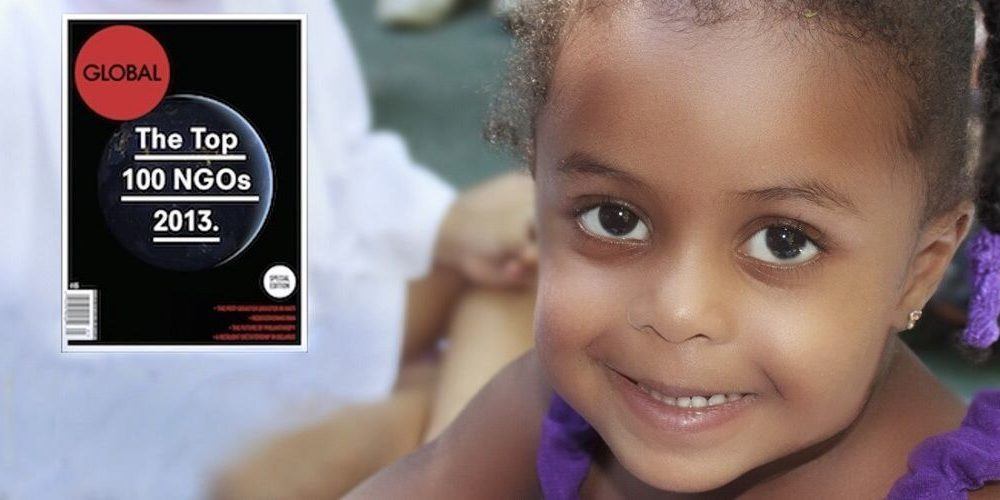
Associacao Saude Crianca: Holistic health solutions for the poor
Childhood illness in the context of poverty is more than a simple matter of biology. It is caused and perpetuated by all of the social and environmental conditions in which the family lives. Such a complex problem requires an equally comprehensive cure, and the care Saúde Criança provides is just that. Through a holistic program focused on five different components of well-being, it empowers families of low-income backgrounds to become economically and socially self-sufficient and able to secure their own health for the long-term. As a donor, you can help us change a family’s life forever.
Impact
To date, Saúde Criança has assisted over 40,000 people with significant results. Family income increases by an average of 35% while the number of hospitalization days is reduced on average by more than 60%. Saúde Criança’s work has moreover influenced public policy in the municipalities of Belo Horizonte, Rio de Janeiro, and Florianópolis, which have all adopted its methodology in various pilot health programs. Belo Horizonte has already invested significantly in “Família Cidadã: Cidade Solidaria” while Rio de Janeiro is initiating a similar pilot project (called “Carioquinha Saúdavel”) in the favelas of Cantagalo, Pavão, and Pavãozinho, and Florianopolis is researching the applicability of the methodology in communities around the area.
Beneficiaries
Saúde Criança offers holistic support to children of poor families from some of the most marginalized favelas, or slums, in Brazil, including Cidade de Deus, made famous by the 2002 film of the same name, and Rocinha, the largest favela in South America. These children and their families live below the poverty line, have little access to high-quality health or education facilities, and are often mired in deep socioeconomic and health problems caused by long-term poverty. The typical family is African-Brazilian and is led by a single mother with 3-4 children, who range from a couple months to 17 years old.
Sustainability
The aid that Saúde Criança provides sets families up for lasting good health. This is ensured through a set of basic requirements that families must meet in order to graduate from the program, including that the household have a good home with access to all basic amenities, all school-age children enrolled in school, children who were sick now in good health, access to the family’s basic legal rights, and at least an income matching minimum wage. These requirements ensure that families are not only in good health physically but have the resources to secure their well-being in perpetuity.
Innovation
The traditional perspective of medicine focuses largely on the biology and regards good health as simply the absence of disease. This approach ameliorates the immediate health problem but does not represent a long-term solution because it ignores the wider context in which the illness occurs. In contrast, Saúde Criança espouses a model of healthcare that transcends the typical approach and addresses all aspects that contribute to total well-being, including biological, social, and psychological factors. Rather than compete with medical professionals, Saúde Criança complements their services by expanding on their treatments and making them more effective. With tailor-made family plans that address several different dimensions of health at once, Saúde Criança´s methodology goes beyond the hospital walls and treats the root of the problem. To our knowledge, Saúde Criança is the only systematic anti-poverty program developed in Brazil and fully-run by members of civil society.
Scalability
Associação Saúde Criança has worked over the last 20 years to refine a methodology that extends beyond the hospital walls to treat the root of these vicious cycles, and does so with basic yet comprehensive actions. This is what makes its approach so effective and capable for expansion. Because it focuses on the core problem of poverty rather than on any specific disease, its methods are highly flexible and adaptable to the local culture. And, because it uses simple and fundamental steps in lieu of expensive technological quick-fixes to place the framework for families to become healthy, its methodology is easily replicable in any country wherever the demand exists. Every developing region represents a variety of distinct cultures and rich traditions; however, health problems rooted in poverty are a problem familiar to all. Saúde Criança’s methodology is an effective solution that secures the biopsychosocial health of the most impoverished for the long-term in a manner that crosses borders.
Source of funding
Funding largely derives from companies and international foundations, including McKinsey & Company (logistics), the Skoll Foundation (growth), the Ursula Zindel Hilti Foundation (finances, growth), Unimed (medical supplies), Instituto Kinder do Brasil (academic scholarships), L’Oreal (technical support, professional training), Queiroz Galvão (house refurbishing program), Johnson & Johnson (educational lectures, transport), Praxair Foundation (growth), and DM9 (advertising). Other funding sources are individual donations and sponsorships in the form of a godmother/godfather program and the sale of Saúde Criança merchandise.